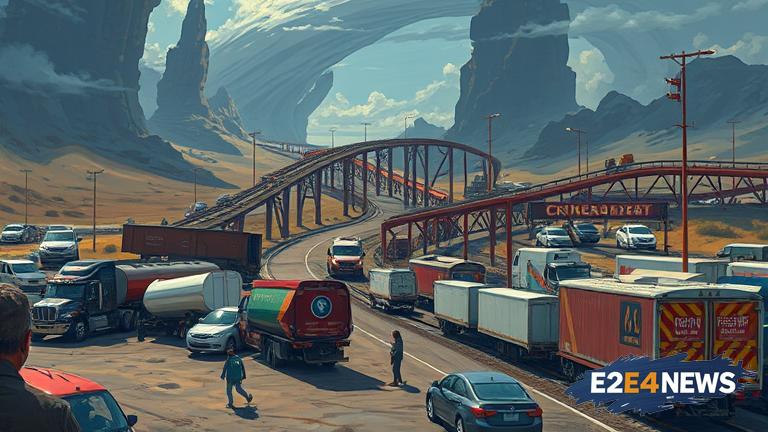The US transportation system is in a state of disarray, with a lack of investment in public transportation and a reliance on personal vehicles contributing to a decline in air quality, increased traffic congestion, and a rise in traffic-related fatalities. The current system is also perpetuating inequality, with low-income and minority communities disproportionately affected by poor air quality, limited access to public transportation, and higher rates of traffic-related injuries and fatalities. Furthermore, the US transportation system is also contributing to climate change, with the transportation sector accounting for nearly 30% of the country’s greenhouse gas emissions. The crisis is also having a significant impact on the economy, with traffic congestion costing the US economy billions of dollars each year in lost productivity and wasted fuel. In addition, the lack of investment in public transportation is also limiting access to employment, education, and healthcare opportunities, particularly for low-income and minority communities. The US transportation system is also facing a crisis of infrastructure, with many roads, bridges, and public transportation systems in a state of disrepair. The American Society of Civil Engineers has given the US transportation system a grade of D+, citing a lack of investment and a reliance on outdated infrastructure. The crisis is also having a significant impact on public health, with air pollution from vehicles contributing to a range of health problems, including respiratory disease, cardiovascular disease, and cancer. In addition, the lack of access to public transportation is also limiting opportunities for physical activity, contributing to a rise in obesity and other health problems. The US transportation system is also perpetuating a culture of car dependency, with many cities and towns designed around the needs of drivers rather than pedestrians, cyclists, and public transportation users. This has contributed to a decline in walking and cycling, and a rise in traffic-related injuries and fatalities. The crisis is also having a significant impact on the environment, with the transportation sector contributing to a range of environmental problems, including air pollution, water pollution, and habitat destruction. In addition, the lack of investment in public transportation is also limiting opportunities for sustainable transportation, including electric and hybrid vehicles, and non-motorized transportation such as walking and cycling. The US transportation system is also facing a crisis of funding, with a lack of investment in public transportation and a reliance on outdated funding models contributing to a decline in the quality and availability of transportation services. The crisis is also having a significant impact on social justice, with low-income and minority communities disproportionately affected by poor air quality, limited access to public transportation, and higher rates of traffic-related injuries and fatalities. Furthermore, the US transportation system is also perpetuating a culture of inequality, with many transportation projects and policies prioritizing the needs of wealthy and privileged communities over those of low-income and minority communities. The crisis is also having a significant impact on the economy, with traffic congestion and air pollution contributing to a decline in economic productivity and competitiveness. In addition, the lack of investment in public transportation is also limiting opportunities for economic development, including the creation of jobs and the stimulation of local economies. The US transportation system is also facing a crisis of leadership, with a lack of vision and leadership at the federal, state, and local levels contributing to a decline in the quality and availability of transportation services. The crisis is also having a significant impact on public opinion, with many Americans expressing frustration and dissatisfaction with the current state of the transportation system. In conclusion, the US transportation system is in a state of crisis, with a lack of investment in public transportation, a reliance on personal vehicles, and a perpetuation of inequality and inefficiency contributing to a decline in public health, safety, and economic productivity.
